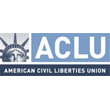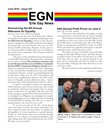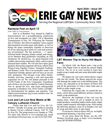ACLU Tells Military Appeals Court Chelsea Manning Prosecution Was Unconstitutional
ACLU Friend-of-the-Court Brief Argues Espionage Act Allows Selective Prosecution of Whistleblowers and Forecloses 'Public Interest' Defense, Violating First Amendment
FORT BELVOIR, Va. - May 19, 2016- The American Civil Liberties Union has filed a brief supporting the appeal of Chelsea Manning's conviction for giving classified documents to Wikileaks, arguing that her prosecution under the Espionage Act of 1917 violated the Constitution and should be overturned.
The friend-of-the-court brief was filed yesterday with the U.S. Army Court of Criminal Appeals, along with Manning's own appeal brief and several other friend-of-the-court briefs. They were all released today following a court security review of Manning's brief.
The ACLU's brief, focusing on the First Amendment, argues that Espionage Act prosecutions of disclosures to the press are unconstitutional for two reasons. First, the act is unconstitutionally vague when it is used against government whistleblowers or leakers because it gives the government too much leeway to engage in selective prosecution of disfavored speakers. The result is that the government leaves some leakers alone while sending others to prison, even if they all revealed similarly classified information. Second, the Espionage Act violates the First Amendment because it leads to prosecutions where a court gives no consideration to the public interest in the disclosures, even if the information reveals government illegality or misconduct.
"It's very disturbing that the law forbade Manning from mounting a defense that took into account the public interest in any of her disclosures, " said ACLU Staff Attorney Esha Bhandari. "It violates the First Amendment for the government to punish the disclosure of truthful information without any consideration of whether the information was important to public discourse. The result is that the government is left free to inappropriately crack down on disclosures about its own misconduct, depriving the public of a vital check on government power. "
The brief includes examples of selective prosecution of leaks, such as CIA officials' efforts to counter criticism of the agency's torture program, including government cooperation with the makers of the film "Zero Dark Thirty. " It also cites the case of former CIA Director David Petraeus, who shared classified information with his biographer.
"The selective prosecution of people who reveal government secrets is profoundly dangerous to our democracy, " said ACLU Staff Attorney Dror Ladin. "Using the Espionage Act to punish government leakers or whistleblowers risks chilling speech on important public issues. Manning's severe punishment is a perfect example of the government picking and choosing who can speak to the press. "
Additional friend-of-the-court briefs were also filed by Amnesty International, the Open Society Justice Initiative, and the Electronic Frontier Foundation together with the National Association of Criminal Defense Lawyers and the Center for Democracy and Technology.
The ACLU's brief is available here:
https://www.aclu.org/legal-document/us-v-manning-aclu-amicus-brief
This statement is available here:





